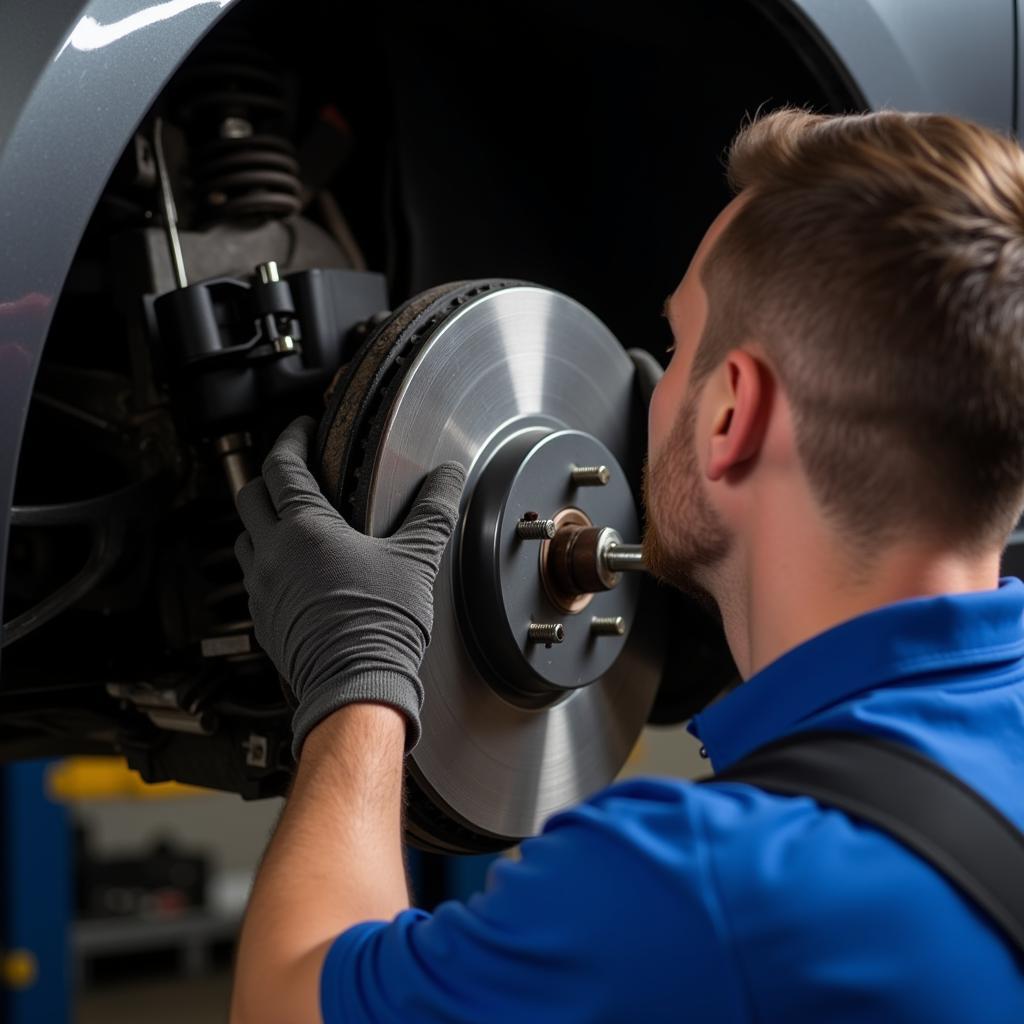Hitting 70,000 miles on your car is a significant milestone. It also means your vehicle is due for some crucial maintenance to ensure it continues running smoothly for miles to come. This comprehensive guide will walk you through all the essential 70,000-mile car maintenance tasks, helping you prevent costly repairs and prolong your car’s lifespan.
Why 70,000 Miles is a Critical Service Point
As your car ages, the wear and tear on its components gradually increase. The 70,000-mile mark generally signifies a point where many parts require inspection and potential replacement to avoid unexpected breakdowns and maintain optimal performance.
Essential 70,000 Mile Car Maintenance Tasks
Here’s a breakdown of the essential maintenance tasks to consider at the 70,000-mile mark:
1. Fluid Check and Replacement
- Engine Oil and Filter: Regular oil changes are crucial for engine health. At 70,000 miles, consider switching to a high-mileage oil designed for older engines.
- Transmission Fluid: This fluid lubricates the transmission’s moving parts. Consult your owner’s manual for the recommended transmission fluid change interval.
- Coolant: Coolant prevents the engine from overheating. Have it flushed and replaced to ensure optimal operating temperature.
- Brake Fluid: Over time, brake fluid absorbs moisture, reducing its effectiveness. Flushing and replacing it ensures optimal braking performance.
- Power Steering Fluid: This fluid keeps the power steering system operating smoothly. Check the fluid level and condition, and top up or replace as necessary.
2. Filter Replacements
- Air Filter: The air filter ensures clean air reaches the engine for optimal combustion. Replace a dirty air filter to improve fuel efficiency and performance.
- Cabin Air Filter: This filter cleans the air entering the cabin. Replace it to maintain good air quality inside your vehicle.
3. Belt and Hose Inspection
- Serpentine Belt: This belt drives various engine components. Inspect it for cracks, wear, and proper tension. Replace if necessary.
- Timing Belt (if applicable): The timing belt synchronizes engine timing. Consult your owner’s manual for the recommended replacement interval as a broken timing belt can cause catastrophic engine damage.
- Hoses: Check all hoses for leaks, cracks, and bulges. Replace any worn or damaged hoses to prevent leaks.
4. Brake Inspection and Service
- Brake Pads and Rotors: Inspect brake pads for wear and tear and rotors for warping or grooves. Replace worn components to ensure optimal braking performance.
- Brake Lines: Check brake lines for leaks or corrosion. Address any issues immediately as they can compromise braking safety.
 Brake Inspection at 70,000 Mile Car Maintenance
Brake Inspection at 70,000 Mile Car Maintenance
5. Suspension and Steering Components
- Shocks and Struts: Inspect shocks and struts for leaks and wear. Worn components can affect ride quality and handling.
- Steering and Suspension Linkages: Check tie rod ends, ball joints, and other linkages for excessive play or damage.
6. Battery Check
- Battery Test: Have the battery tested to ensure it’s holding a proper charge. Batteries typically last 3-5 years.
7. Lights and Electrical System
- Lights: Inspect all exterior and interior lights for proper operation. Replace any burnt-out bulbs.
- Wipers: Check wiper blades for wear and tear and replace them if they leave streaks or don’t clear the windshield effectively.
Additional Considerations
- Spark Plugs: Consult your owner’s manual for the recommended spark plug replacement interval. New spark plugs can improve fuel economy and engine performance.
- Fuel System Cleaning: Consider a fuel system cleaning to remove deposits and improve fuel efficiency.
- Tire Rotation and Balance: Rotate and balance tires every 5,000-7,000 miles to ensure even wear.
“Regular maintenance is the key to getting the most out of your vehicle. Following the recommended service schedule, especially at significant milestones like 70,000 miles, can save you from costly repairs down the road.” – John Smith, Senior Automotive Technician
Conclusion
Reaching the 70,000-mile mark is a significant achievement for your car. By following these essential maintenance recommendations, you can ensure your vehicle continues running smoothly, reliably, and safely for many miles to come. Remember, regular car maintenance is always a worthwhile investment.
Need expert assistance with your 70,000-mile car maintenance? Contact AutoTipPro at +1 (641) 206-8880 or visit our office at 500 N St Mary’s St, San Antonio, TX 78205, United States. We’re here to help!







Leave a Reply